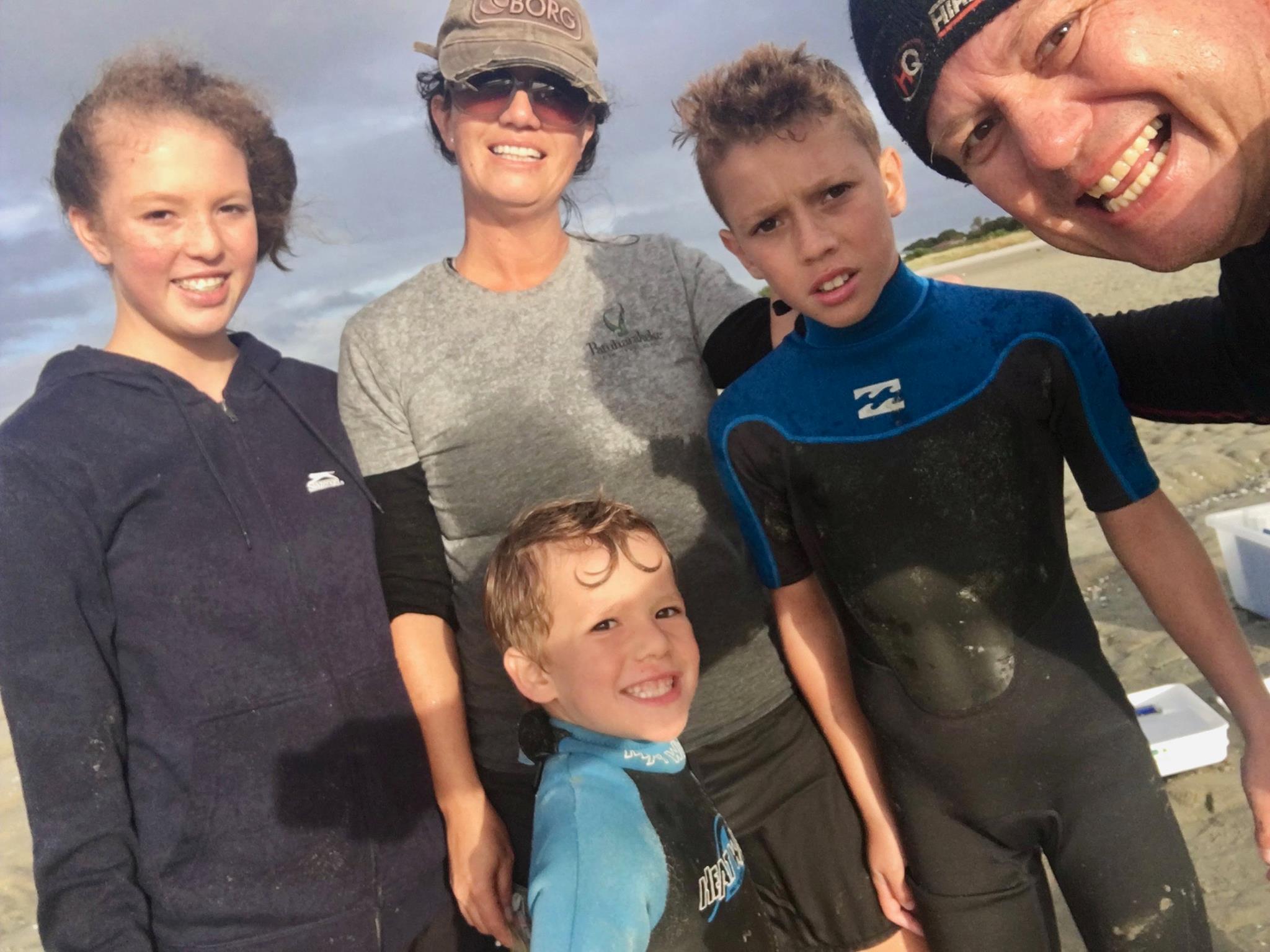Te Wiki o te Reo Māori profile: Juliane Chetham
To celebrate Te Wiki o te Reo Māori (Māori language week) we're profiling some of our incredible Māori scientists and kaitiaki (guardians). First up, it's our pleasure to introduce Juliane . . .
Julianne Chetham
Patuharakeke, Ngātiwai, Ngāpuhi
Ngā Rākau Taketake Rapid Implementation and Scoping groups
*
Where did you grow up and where do you live now?
I grew up at Marsden Bay on the shores of the Whangarei Harbour. Our Marae is at Takahiwai nearby. I now live not far from where I grew up, in Whareora just outside of Whangarei.
*
What are your earliest memories of nature/the environment?
We lived right at the water’s edge of Rauiri/Blacksmith’s creek. I have fond memories of floundering and gathering pipi and cockles with my Dad most weekends and these early experiences definitely shaped my career.
*
How would you describe your
job?
I have heaps of jobs … When you are Māori working in the taiao field you
have to be across a number of areas.
I do a lot of work in the RMA field, policy development, assessing the cultural impacts of resource consent applications and things like that for our hapū trust. I’m also really interested in helping to develop cultural monitoring frameworks and applying these in different contexts.
I’ve worked with other hapū environmental practitioners to develop cultural frameworks for monitoring kauri health in the ngahere, and also a Takutai Health Analysis for measuring the health of our mahinga mataitai areas. I also work as an Independent Environmental Commissioner for Auckland Council.
*
What inspired you to follow your chosen career?
Growing up where I did, my whānau instilled a deep love and respect for the
environment (and particularly the sea) in me.
As a teenager, industrial development in the Whangarei Harbour really started to increase. The beloved pipi bed where my father and I had collected pipi now had to make way for a timber port. The RMA (Resource Management Act) had not long been enacted. I began to get very interested in how concepts like kaitiakitanga and Māori values in general were addressed in decision-making.
I studied Geography and Marine Biology at Auckland University, then for my thesis did a case study on the timber port at Marsden Point (Northport) and how the hapū of the harbour were involved in that process.
*
How does your Māori
whakapapa/culture influence how you approach your mahi?
My whakapapa and culture give me a very broad and holistic approach to my mahi.
It can be a good and bad thing as its quite hard to be across a wide range of interests. But it’s important to see the bigger picture and how what is going on in a range of sectors is all interrelated, particularly in outcomes for Māori values in the environmental space.
*
What are your hopes for
Māori in this space in the future?
I want our rangatahi to realise there is a real future for them in science, a
future where they can apply mātauranga that is passed down from their whānau
and hapū to them and utilise it in the exercise of kaitiakitanga into the
future.
For a long time, we have been telling our kids to be doctors or lawyers. However, we desperately need to (re)build our capacity in protecting and managing our taonga.
*
How do you think BioHeritage
can/will help with this?
The BioHeritage challenge represents a whole new way of procuring and
delivering science, and mātauranga Māori has been specifically embraced by the
challenge.
My past involvement in the Kauri Dieback Programme and Customary Fisheries research has illustrated the difficulties in getting traditional research and research carried out by hapū and whanau.
I am hopeful the challenge will better enable and empower Māori to lead mātauranga research and methodologies as well as co design and develop contemporary science pathways.
I believe there is space in the challenge for kaumātua, Māori researchers and traditional practitioners, and our young people, whether they be coming through academic tertiary pathways or are kaitiaki monitors active at the flax roots level.
